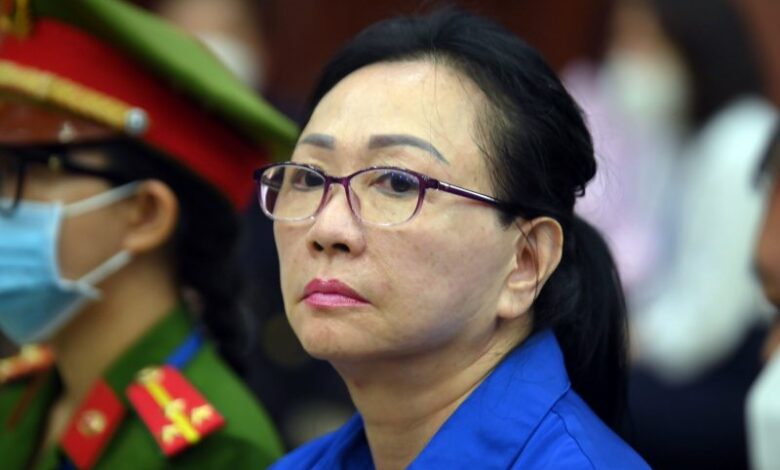
Truong My Lan, one of Vietnam’s most powerful property tycoons, has lost her appeal against the death sentence for what was widely described as the world’s biggest bank fraud. The once influential 68-year-old property tycoon in the land of the ascending dragon now races against time to clear $9 billion of a $12 billion fine meted out on her upon determination that she had embezzled that amount. Under Vietnamese law, repaying 75% of the stolen amount could potentially reduce her sentence to life imprisonment.
She was born in Ho Chi Minh City, where she began her business as a cosmetics vendor in the market alongside her mother. Capitalizing on the 1986 economic reforms, she expanded her business, building an impressive property portfolio by the 1990s that included hotels and restaurants. By the time she became chairwoman of the Van Thinh Phat Group, her real estate empire was large enough to establish her as a major mover in the industry.
Her fraudulent dealings came to light after her arrest in October 2022. Prosecutors revealed that she secretly controlled Saigon Commercial Bank, or SCB, Vietnam’s fifth-largest lender. From 2012 until 2022, using a network of shell companies and third parties, Lan orchestrated a vast scheme of sham loan applications, which siphoned off an estimated $12.5 billion. The total damages from the fraud may have reached as high as $27 billion, or nearly 3% of the GDP of Vietnam, leaving several citizens without their life savings.
To cover up the scam, Lan and her accomplices, including former bank bosses and government officials, allegedly doled out $5.2m in bribes-the largest on record in the country. The trial took in 85 defendants, also including Lan’s husband and her niece, with the authorities gathering 105 boxes of evidence weighing more than six tonnes.
In April 2024, Lan was sentenced to death for embezzlement, bribery, and violations of banking regulations. Her lawyers are currently trying to raise the $9 billion needed to avoid execution, as she works to liquidate assets and seek loans. It has been tough to sell her luxury real estate and other holdings, and her lawyers say that the death sentence limits her ability to negotiate good terms for her assets; she’d have better prospects, they argue, if her sentence were commuted to life in prison.



